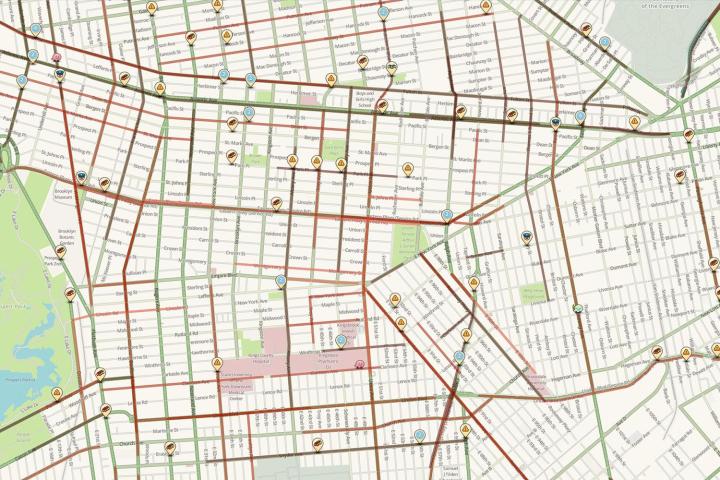
Competing service PhantomAlert this week filed a lawsuit in a San Francisco federal court claiming Waze stole some of its data to help improve its product prior to Google’s acquisition of the company.
PhantomAlert, which, like Waze, also offers drivers real-time data on things like traffic congestion and road construction as well as information on stoplights and red-light cameras, alleges in the suit that “Waze copied PhantomAlert’s proprietary database without permission and incorporated that misappropriated data into Waze’s popular iPhone and Android navigation apps.”
So with most road maps understandably looking pretty much the same, how did PhantomAlert arrive at the idea that Waze might be taking some of its data for its own iOS and Android apps?
Well, an old trick employed over the years by map makers keen to protect their work has been to drop in a few “trap streets” or “copyright traps,” fictitious roads or other fake data that would be hard for a rival to explain away should they get caught including it in their own map. In PhantomAlert’s case, the fake data comprised a small portion of content from its own “points of interest” database.
PhantomAlert boss Joseph Seyoum told Cnet he decided to take a closer look at Waze’s data after the $1-billion deal with Google went through. It was then that he claims to have spotted some of PhantomAlert’s fake points-of-interest data on Waze’s maps.
But here the story takes another turn. Some time after Google acquired the Israel-based company in 2013, some of those trap streets, as well as other data points from PhantomAlert’s own content, started turning up in some of Google’s own apps.
Washington, DC-based PhantomAlert has had dealings with Waze in the past. In 2010 the pair entered into discussions over a possible data-sharing deal, but talks ultimately collapsed because, according to PhantomAlert attorney Karl Kronenberger, “Waze did not have a substantial database to share at that time.”
Kronenberger said in a statement this week, “Waze needed to grow its database to increase its value and become more attractive to potential acquirers,” adding, “Our complaint alleges that Waze stole PhantomAlert’s database when Waze could not get it legally, and then sold itself to Google for over $1 billion.”
In the same statement, Seyoum makes his feelings clear: “I started PhantomAlert seven years ago as an entrepreneur with a dream, and now that dream has been crushed by companies that are profiting from the years of blood, sweat and tears our team put into our product.”
The startup is seeking monetary damages (amount unspecified) as well as an injunction to stop Waze and Google using the allegedly stolen data in their various apps.
Digital Trends has contacted Waze for comment and will update if we hear back.
Editors' Recommendations
- The 6 biggest announcements we expect from Google I/O 2024
- The Google Pixel Watch 3 could steal this Apple Watch feature
- The Galaxy S24 is stealing one of my favorite Google Pixel 8 features
- How to save your data from Google’s purge of inactive accounts
- Watch out: Google Drive may have lost months of data


